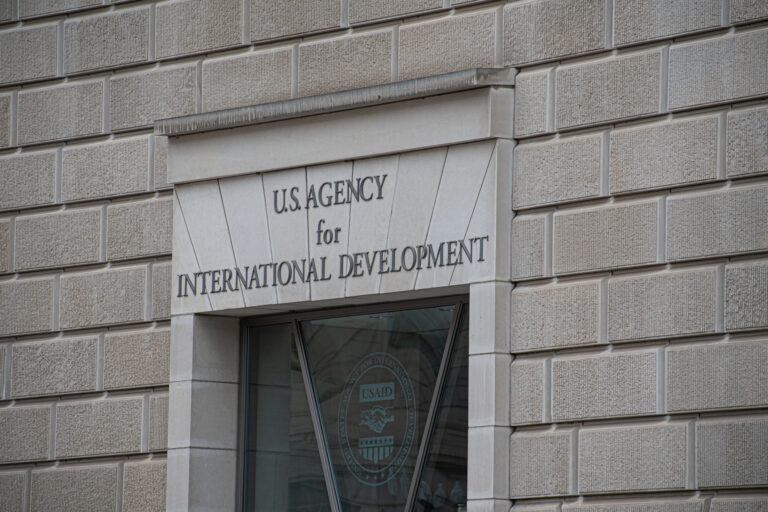The recent “Abortion Networks” Leaders’ Meeting, organized by the Population Research Institute (PRI) and Origen Association, brought together over 150 leaders from 16 countries to analyze the new paradigm of the international abortion lobby.
Held in a “hybrid” format, the event became a true turning point for the pro-life cause in Ibero-America: a day of sharing groundbreaking evidence, successful legal strategies, and a coordinated vision for regional action.
The event featured prominent international figures such as Steven W. Mosher, President of PRI; Carlos Polo, PRI’s Director for Ibero-America; Giuliana Caccia, Director of Origen; Luca Volontè, a member of CitizenGO’s Board; Rodrigo Iván Cortés, President of Mexico’s National Front for the Family; Carlos Beltramo, Director of PRI’s European office; and representatives from PRODECI, an Argentine association specializing in strategic litigation for life and family.
Among the in-person attendees were notable figures from public thought and communication, such as Miklos Lukacs and Francisco de Piérola, alongside academics, social leaders, journalists, and public officials. The atmosphere was one of a determined community ready to transform knowledge into action.
A New Paradigm: The “Abortion Networks”
The three new reports prepared by PRI and Origen—on FIGO, CLACAI, and FP2030—provided an unprecedented analysis of the global network driving abortion legalization. PRI President Steven Mosher summarized it brilliantly:
“We were used to talking about specific organizations like IPPF or Population Services International, or billionaires like Bill Gates or Warren Buffet. But the situation has evolved. It’s no longer enough to focus on individual actors, whether people or institutions. Now, the various facets of the abortion movement are connected through a highly sophisticated, well-organized, and deeply lethal network of international and local actors,” he said.
As stated in our report, FIGO, based in London, operates as a radical pro-abortion organization camouflaged as a scientific society. It has received tens of millions of dollars from USAID—over $89 million in October 2024 alone—to implement advocacy projects in ten countries, promoting abortion even in advanced stages of pregnancy.
CLACAI, on the other hand, is a regional coalition uniting 165 organizations across 19 countries, coordinated from Peru by PROMSEX. It promotes abortion through the use of misoprostol under the guise of sexual health and comprehensive sex education programs.
Finally, the FP2030 report reveals that this global network—also funded by USAID with a $15 million grant in 2022—integrates abortion as a central component of its “family planning” concept. Its openly pro-abortion stance has become evident in recent months. Despite Trump administration policies prohibiting funding for programs promoting or performing abortions, FP2030 chose to reject that funding rather than exclude the abortion component, which it considers a core pillar of its agenda.
The Cultural Battle: Peru’s Success Story
Giuliana Caccia, Director of Origen, presented the Peruvian case as one example of how this information translates into concrete political action. Caccia explained how, after identifying FIGO’s legal strategy and its local allies, Origen documented illegal abortions performed under unconstitutional protocols and exposed foreign funding aimed at influencing Peruvian laws.
“We knew who they were, how they operated, and what their weaknesses were,” she stated. “With that information, we mobilized congressmen, ministers, media, and civil organizations… and we succeeded in repealing a regulation that sought to open the door to abortion on demand in Peru and had, in fact, facilitated dozens of abortions that violated local laws.”
The success of this operation—combining research, political advocacy, and citizen mobilization—was hailed as evidence that the cultural battle can be won with solid evidence and coordinated leadership.
A Network of Defenders in Action
The event also served to strengthen an international collaboration network. Luca Volontè, from Italy, emphasized the importance of information as the starting point for effective action: “Thanks to these valuable reports, we can now clearly identify who the perpetrators of the deaths of the innocent are and who funds them.”
Rodrigo Iván Cortés, from Mexico, noted that “(regarding abortion) the population is often caught between two fires: the illegal organized crime of these NGO networks and the organized crime from governments, both selling abortion as a service or a right.”
Carlos Beltramo offered a strategic reflection on the current international political situation: “The value of these three reports—and those to come—lies in their timing, shedding light and breaking the connections that link abortion actors globally.”
The Leaders’ Meeting made it clear that the threat is neither isolated nor spontaneous. Rather, it is a globally funded, planned, and precisely executed strategy.
PRI’s reports not only expose the economic and operational links between major NGOs but also provide practical tools to identify local actors, anticipate their moves, and coordinate effective responses. As one attendee noted, “For the first time, we have the complete map of the abortion machinery.” The information presented enables the transformation of outrage into strategy and the defense of life into professional, coordinated political action.
The day concluded with a collective commitment to turn the reports’ findings into concrete victories in each country.
“Knowing how they operate is the first step,” said Giuliana Caccia, “but action is essential. Knowledge without action is complicity.”
The “Abortion Networks” Leaders’ Meeting not only marked an informational milestone but also a strategic rebirth of the pro-life movement in Ibero-America. The task ahead is clear: turn information into action and action into results.







